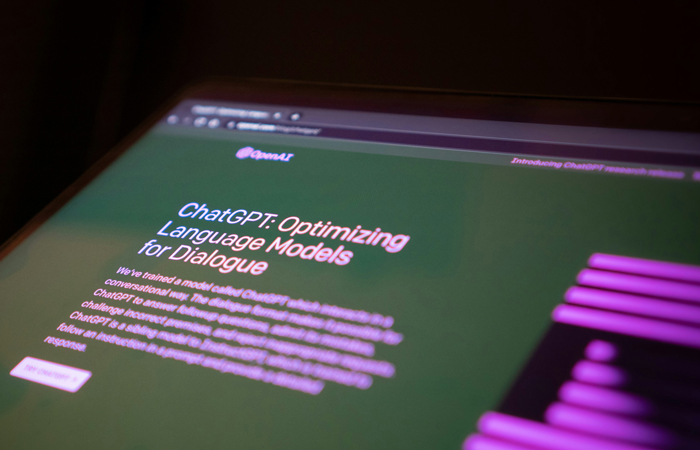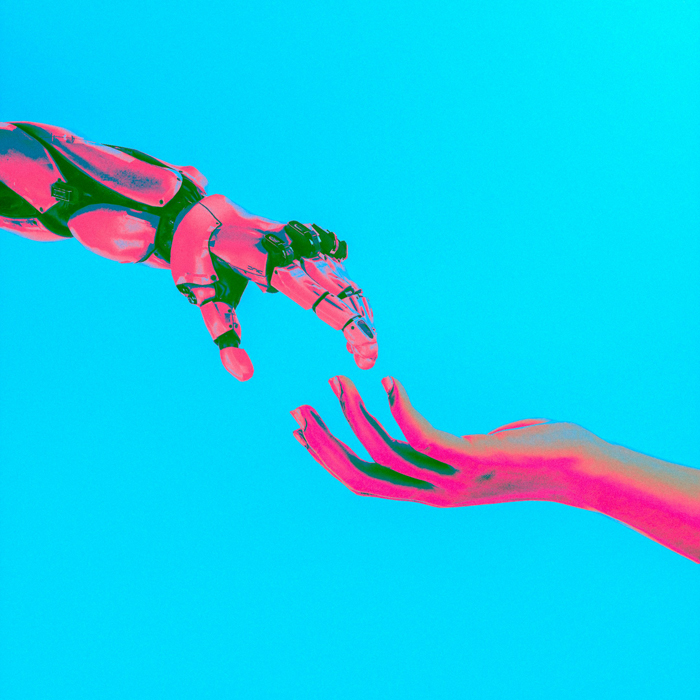Is it time to embrace the future: Helen Parton explores AI’s role in shaping design communications
The integration of Artificial Intelligence (AI) in publishing is a technological advancement and a transformative shift that has the power to reshape the publishing and media industry. As an online publisher, Design Insider’s understanding of AI’s potential is paramount to us, however, this technology’s impact extends beyond publishing; it affects commercial interior designers and suppliers whose brand success is intricately tied to their text-based communications. In an industry where design narratives and brand stories are pivotal, AI’s role in creating, optimising, and personalising content cannot be overstated.
To delve deeper into this subject, we turned to Helen Parton, an architecture and interiors journalist with over two decades of experience. In our interview, Helen explores how AI is revolutionizing the way we create and interact with content, offering a glimpse into the future of design communication and the broader implications for the industry.

Helen Parton, Architecture and Interiors Journalist
Please could you introduce yourself and your role?
I’m a freelance writer, author and editorial consultant with a background in journalism that spans over twenty years. I’ve always written about interior design and architecture, expanding my ‘beat’ in the last few years to include property and engineering, really encompassing the whole of the real estate ecosystem. My work runs the creative and commercial gamut from magazine features to white papers and thought leadership pieces, with moderating talks being a particular favourite activity of mine.
Can you share your experiences with the use of AI in journalism, PR, and marketing, within the commercial interiors sector, highlighting both the positive and negative aspects?
The main AI tools I use are Otter (a transcription service) and Chat GPT (for generating text, there are lots of others available). I have used ChatGPT for everything from telling me the structure of a particular type of marketing report to switching between more b2b and consumer tones of voice. It’s great as an assistant to my editorial practice but at the moment, it can’t replace teasing out great quotes from a specialist in the field. Chat GPT’s responses also quickly get repetitive and err on the side of the superlative and so need judicious editing.

ChatGPT is a key AI copywriting tool
In your opinion, how has AI impacted journalism/PR/marketing?
Otter is an absolute game changer in terms of enabling me to quickly access accurate records of what interviewees have said, I’m not sure I could do without it. And with the likes of ChatGPT AI quickly moves the editorial process on from the blank page so it has certainly impacted journalism in terms of saving me time. It can be particularly useful in marketing and PR where writing is just one of the disciplines required, to help those who are just getting started in their careers. It can’t replace learning from others with more experience that said.
What challenges or concerns do you think need to be addressed regarding the use of AI?
Fact checking is obviously a big one – the Guardian reported in April last year how Chat GPT was making up fake articles. For long form copy, sheer quality of writing at the moment is not on par with what a human writer can achieve. The challenge is to harness the technology in the right way – I think we could all do with brushing up on our prompts, myself included. Also as Cathy O’Neil points out in her book Weapons of Math Destruction big data and algorithms can impact inequality and the same can be said for AI too.
What do you currently consider best practices for utilizing AI in journalism and PR for the commercial interiors sector?
First of all I think having experience of using AI and what it’s capable of is an important first step. I’m amazed at the number of writers and editors who have not tried it or ‘tried it once, didn’t like it’. I think it’s your editorial duty to be informed even if you choose not to engage. I think it’s important to back up the points you make in a piece of writing with credible sources. I’ve not dabbled much in AI imagery but I’d say when the commercial interiors industry needs to be mindful of copyright, that could create issues too.
What specific AI tools have you found most influential in copywriting and research, and why?
I’ve yet to fully explore all the AI tools that can generate text but I’d say those for me are the ones that are going to be most influential. When I’ve used Chat GPT to condense down a fact finding chat into, say, a press release, it’s worked really well but with some refining necessary. It’s also good to compare and contrast your knowledge with its – when I ask it to list trends in a particular area, there are usually some relevant, some irrelevant and some that I had already thought of which makes it really useful.

Successful AI generated copywriting currently relies on human input
Have you noticed any patterns that indicate when content has been generated by AI, and how does this affect the authenticity and quality of the content?
Yes, it gets repetitive really quickly! I’ve experimented with it writing whole articles – purely as a test you’ll understand. It starts off well enough but rapidly descends into expressing the same thing in almost the same way which makes it unfit for purpose. There is distinctively fulsome quality to a lot of AI output that once you start playing around with it – and this is why you must- you notice increasingly. This makes the tone of voice inauthentic and artificial – and certainly not fit to publish!
Where do the opportunities in using AI lie?
AI tools are brilliant at summarising content and so there are opportunities for short form writing for sure – particularly text for newsletters or social media. This I suppose in turn represents a threat to those whose work is solely in these fields. It’s also good at adding a bit of consumer ‘zhush’ to copy that requires it. And just providing alternatives for headlines, synonyms and turns of phrases
Overall, do you believe the integration of AI is having a positive or negative impact on journalism/PR/marketing?
I think on balance and used in the right way, AI can have a positive influence on many sectors of the written word from journalism to PR and marketing. At present, I don’t think an AI tool can completely replace human authors but it’s important to keep a close eye on developments and be aware how to harness AI’s powers in streamlining the editorial and marketing process.




